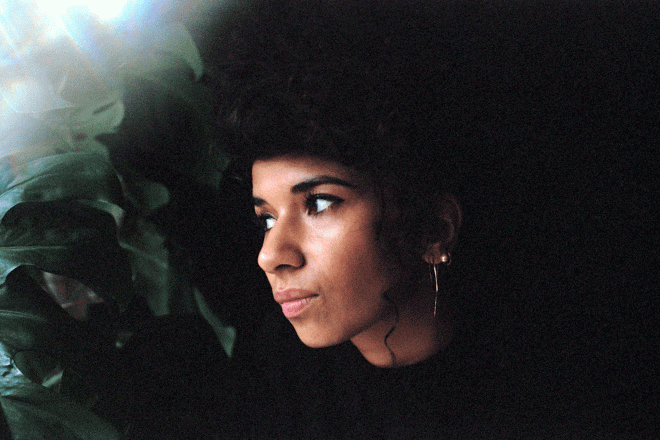Nabihah Iqbal calls out Damon Albarn's Africa Express project for "injustices"
"Unless we take the risk to speak out about these injustices, things will never change”

Nabihah Iqbal, formerly known as Throwing Shade, has publicly called out Damon Albarn's Africa Express project after receiving a contract that she believes is exploiting artists who participate in the campaign.
After participating in the Africa Express project, a week-long recording session in South Africa that brought together African and Western artists to collaborate on new music, Iqbal received a contract stating that all artists must waive their rights to the music they made in exchange for a £1 fee.
Iqbal shared a photo of the contract on Facebook, where a portion of the contract reads: "In consideration of the payment of £1 receipt of which is hereby acknowledged you hereby give and grant us all necessary consents with regards to making recordings(s) of your performance (the Recordings) and to filming you making those Recordings together with any interviews you have have given (the Footage)... You acknowledge that we will own all of the copyrights and other rights in the Recordings, the Footage and any photos we may take of you (the Album), so that we are able to use them throughout the World in all forms, formats, means and media."
Expressing her reasons for sharing the contract publicly, Iqbal wrote: “I felt obliged to share this contract because I believe it is in the public interest. People need to know what is really behind the façade of this ‘charity’. As a POC, I know the playing field is not level. It never has been. But unless we take the risk to speak out about these injustices, things will never change.”
After approximately 24-hours of public outrage, Africa Express released a statement on Facebook stating that the contract was previously agreed upon and they do pay out royalties: “AE is not run to make a profit. As we pay all the travel, accommodation and other costs for Western artists joining us on trips, we ask them to volunteer their time. They can make a contribution to our costs if they are willing. We do not pay them. All our contracts are negotiated, discussed and agreed, not inflicted.
“The artists in Africa are treated differently, reflecting often different circumstances. We do pay them for their time… We ensure that all profits made from recordings - after costs - go to artists and the promotion of African music.”

Mixmag will use the information you provide to send you the Mixmag newsletter using Mailchimp as our marketing platform. You can change your mind at any time by clicking the unsubscribe link in the footer of any email you receive from us. By clicking sign me up you agree that we may process your information in accordance with our privacy policy. Learn more about Mailchimp's privacy practices here.

